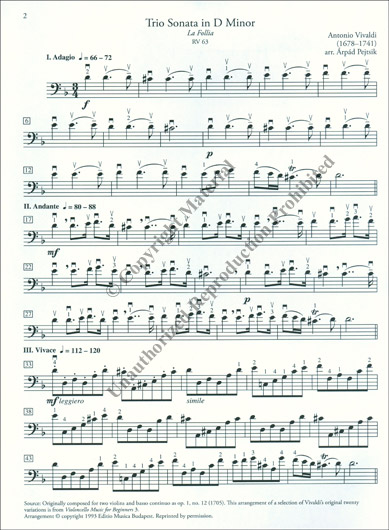

One etude by Arban, Brandt, Clarke, Sachse, Charlier, or similar may be chosen to replace one of the standard works. One etude from Voxman, Ferling, or similar may be chosen to replace one of the standard works.Īt least two contrasting works and/or movements from the standard literature including, but not limited to, works by Haydn, Hummel, Neruda, Kennan, Brandt, Ropartz and Balay. One etude from Ferling: 48 Famous Studies, Weissenborn: Fifty Advanced Studies, or similar may be chosen to replace one of the standard works.Īt least two contrasting works and/or movements from the standard literature including, but not limited to, works by Handel and Eccles (arr. One etude may be chosen to replace one of the standard works.Īt least two contrasting works and/or movements from the standard literature including, but not limited to, works by Mozart and Weber. One etude may be chosen to replace one of the standard works.Īt least two contrasting works and/or movements from the standard literature including, but not limited to, works by Handel, Marcello, Cimarosa, Hanson, Albinoni, and Telemann. One etude from Andersen, Gariboldi, Karg-Elert, or similar may be chosen to replace one of the standard works.Īt least two contrasting works and/or movements from the standard literature including, but not limited to, works by Mozart, Weber, Schumann, and Stamitz. For recorded auditions play one major and one minor scale (2 octaves minimum) and one chromatic scale (2 octaves minimum) and announce the scales performed.Īt least two contrasting works and/or movements from the standard literature including, but not limited to, works by Telemann, Handel, and Bach.
#ROMANTIC CELLO REPERTOIRE FULL#
All major and minor scales should be prepared in at least two octaves and the chromatic scale in the full range of the instrument. Two works contrasting in style or tempo are desirable. Instrumentation should be for piano/keys, bass, and drums. Vocalists must also provide three prepared rhythm section parts for each audition selection. Vocalists may select their own key for the audition repertoire. In addition to the above, all vocalists must perform “Autumn Leaves.” Particular emphasis and attention should be given to jazz vocal stylization/interpretation, swing-ability, jazz phrasing, and jazz improvisation. The electric bass student should also demonstrate the thumb and pop style.īe prepared to play time and trade 4s in the following styles: rock, funk (hip-hop), swing (fast swing and shuffle), samba, mambo, bossa nova, salsa, etc.ĭemonstrate the ability to (comp) accompany a jazz soloist and/or jazz vocalist. Please see Jazz Studies Audition Information for a list of required standards.ĮCU Jazz Studies Program Recorded Audition Requirements and Materialĭemonstrate the ability to walk a 12-bar blues, perform a melody, and improvise over chord changes.

Sight reading will also be expected by all candidates. All auditions should focus on jazz interpretation, stylistic characteristics and each composition must be performed from memory. 9Īdditional organ audition information here.ĭemonstrate the ability to perform “the head” to selected standard jazz compositions and the ability to improvise over the preexisting standard and altered chord changes.

Langlais: Organ Book Dupré: Fifteen Antiphons for Organ Schroeder: Kleine Präludien und Intermezzi, Op. Selected movements from the Mendelssohn Sonatas Vierne: 24 Pieces en Style Libre Brahms: Chorale Preludes, Op. Suggested Repertoire: Baroqueīach: Chorale Preludes from the Orgelbüchlein or one of the Eight “Little” Preludes and Fugues Couperin: Pieces d’Orgue Romantic For prospective performance majors, memorization is encouraged.
#ROMANTIC CELLO REPERTOIRE FREE#
The hymn may incorporate a free introduction and/or reharmonized verse(s). Works from three style periods (Baroque, Romantic, and Contemporary) and one hymn are required. ContemporaryĪ work by Debussy, Bartok, Prokofiev, or another 20th or 21st century composer. RomanticĪ work by Mendelssohn, Chopin, Brahms, Schumann, or Liszt.

One movement of a sonata by Haydn, Mozart, Beethoven, or an equivalent work. Suggested Repertoire: BaroqueĪ two-part or three-part invention or a selection from the Well-Tempered Clavier by Bach, or an equivalent work from the same period. Sight-reading portion of the audition will take place during the Audition Day interview with the piano faculty. If you submit a recorded audition, select ONE major key and ONE minor key for scales and arpeggios. The auditioning committee will make requests from the following technical areas: all major and minor scales and all major and minor triad arpeggios in root position (four octaves). At least two of the three compositions must be performed from memory. Works from three of the four style periods (Baroque, Classical, Romantic, 20 th & 21 st Century) are required.


 0 kommentar(er)
0 kommentar(er)
